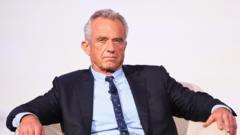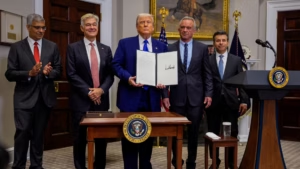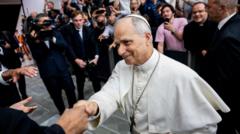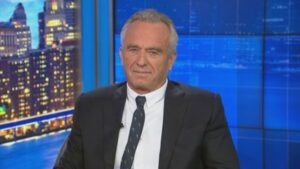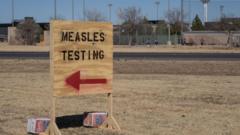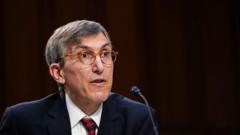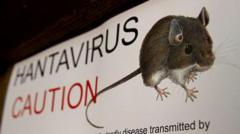Should Robert F. Kennedy Jr. succeed in implementing a nationwide ban on pharmaceutical adverts, it may not only disrupt funding for major media outlets but also pave the way for more direct journalism regarding the pharmaceutical industry and its practices.
RFK Jr. Advocates for Ban on Pharmaceutical Ads, Potentially Transforming Media Landscape
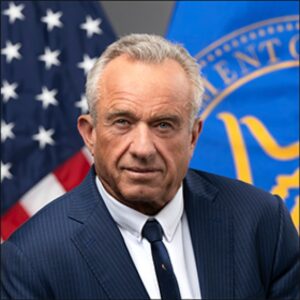
RFK Jr. Advocates for Ban on Pharmaceutical Ads, Potentially Transforming Media Landscape
HHS Secretary Robert F. Kennedy Jr. aims to outlaw pharmaceutical advertisements on television, echoing regulations seen in many countries and sparking heated discussions about media integrity.
Article text: According to multiple reports, HHS Secretary Robert F. Kennedy Jr. is preparing to push for a nationwide ban on pharmaceutical advertisements on television—a move that could trigger what some are calling a massive societal shift. RFK Jr. has long criticized Big Pharma’s influence on public health and media, and if successful, this ban would align the U.S. with most other nations that do not permit direct-to-consumer pharmaceutical ads.
Political commentator Liz Wheeler warned that two significant consequences would follow this decision. First, corporate media could suffer substantial financial losses. Wheeler suggested that mainstream media relies heavily on the ad revenue provided by pharmaceutical companies, which she believes keeps its operations afloat. "Mainstream media is just a fake business," she stated, arguing that the industry's reliance on these ad dollars undermines genuine viewer demand and return on investment. She posited that without the billions spent on pharmaceutical advertising, networks might face mass layoffs, anchor firings, or even complete shutdowns.
Second, with the financial support from pharmaceutical ads cut off, traditional media might start to pursue more rigorous and truthful investigative journalism. Wheeler asserted that the cessation of ad revenue could allow for more transparency regarding pharmaceutical corruption, vaccine safety, and the complicity of major regulatory bodies like the CDC, FDA, and AMA. "It was a money laundering scheme all along to keep reporters silent about the abuses coming out of pharma," Wheeler claimed.
If RFK Jr. follows through with his policy initiative, it holds the potential to expose the longstanding collusion between Big Pharma and corporate media, ultimately ushering in a new era of accountability and truth in reporting that has previously been suppressed.
Political commentator Liz Wheeler warned that two significant consequences would follow this decision. First, corporate media could suffer substantial financial losses. Wheeler suggested that mainstream media relies heavily on the ad revenue provided by pharmaceutical companies, which she believes keeps its operations afloat. "Mainstream media is just a fake business," she stated, arguing that the industry's reliance on these ad dollars undermines genuine viewer demand and return on investment. She posited that without the billions spent on pharmaceutical advertising, networks might face mass layoffs, anchor firings, or even complete shutdowns.
Second, with the financial support from pharmaceutical ads cut off, traditional media might start to pursue more rigorous and truthful investigative journalism. Wheeler asserted that the cessation of ad revenue could allow for more transparency regarding pharmaceutical corruption, vaccine safety, and the complicity of major regulatory bodies like the CDC, FDA, and AMA. "It was a money laundering scheme all along to keep reporters silent about the abuses coming out of pharma," Wheeler claimed.
If RFK Jr. follows through with his policy initiative, it holds the potential to expose the longstanding collusion between Big Pharma and corporate media, ultimately ushering in a new era of accountability and truth in reporting that has previously been suppressed.



